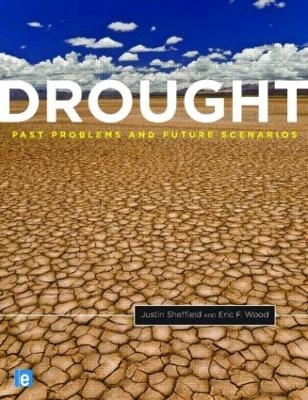
Drought
Earthscan Ltd (Verlag)
978-1-84971-082-4 (ISBN)
- Titel z.Zt. nicht lieferbar
- Versandkostenfrei
- Auch auf Rechnung
- Artikel merken
Drought is one of the likely consequences of climate change in many regions of the world. Together with an increased demand for water resources to supply the world's growing population, it represents a potentially disastrous threat to water supplies, agriculture and food production, leading to famine and environmental degradation. Yet predicting drought is fraught with difficulty.
The aim of this book is to provide a review of the historical occurrence of global drought, particularly during the twentieth century and assess the likely potential changes over the twenty-first century under climate change. This includes documentation of the occurrence and impacts of major twentieth century drought events and analysis of the contributing climatic and environmental factors that act to force, prolong and dissipate drought. Contemporary drought is placed in the context of climate variability since the last ice age, including the many severe and lengthy drought events that contributed to the demise of great civilizations, the disappearance of lakes and rivers, and the conversion of forests to deserts.
The authors discuss the developing field of drought monitoring and seasonal forecasting and describe how this is vital for identifying emerging droughts and for providing timely warning to help reduce the impacts. The book provides a broad overview of large scale drought, from historic events such as the US Dust Bowl and African Sahel, and places this in the context of climate variability and change. The work is soundly based on detailed research that has looked at drought occurrence over the twentieth century, global drought monitoring, modeling and seasonal prediction, and future projections from climate models.
Justin Sheffield is a research hydrologist at Princeton University, New Jersey, USA. He has a PhD in hydroclimatology from Wageningen University in the Netherlands. Dr. Sheffield has carried out research for the past 20 years in the UK and USA on a wide range of hydrologic problems, including the interaction of hydrology with climate variability and change, the characterization of hydrologic extremes, and the use of computer models and remote sensing data to understand the global water and energy cycles. Eric F. Wood is Professor of Civil and Environmental Engineering at Princeton University, where he has taught since 1976. He received a ScD in Civil Engineering from the Massachusetts Institute of Technology. His research interests include hydroclimatology with an emphasis on land atmosphere interactions, terrestrial remote sensing, and seasonal hydrologic prediction. Dr. Wood is a fellow of the American Meteorological Society (AMS) and the American Geophysical Union, and a recent recipient of the European Geosciences Union's John Dalton Medal and the AMS's Jule Charney Award.
Preface 1. Introduction 2. What is Drought? 3. The Science of Drought 4. Quantifying Drought 5. Paleo-Drought: The Occurrence of Drought over Past Millennia 6. Drought in the 20th Century 7. Major Drought Events of the 20th Century 8. Drought in the 21st Century 9. Summary and Recommendations. Index
| Erscheint lt. Verlag | 30.3.2011 |
|---|---|
| Verlagsort | London |
| Sprache | englisch |
| Maße | 189 x 246 mm |
| Gewicht | 620 g |
| Themenwelt | Naturwissenschaften ► Biologie ► Ökologie / Naturschutz |
| Naturwissenschaften ► Geowissenschaften ► Meteorologie / Klimatologie | |
| Technik ► Bauwesen | |
| Technik ► Umwelttechnik / Biotechnologie | |
| Weitere Fachgebiete ► Land- / Forstwirtschaft / Fischerei | |
| ISBN-10 | 1-84971-082-1 / 1849710821 |
| ISBN-13 | 978-1-84971-082-4 / 9781849710824 |
| Zustand | Neuware |
| Informationen gemäß Produktsicherheitsverordnung (GPSR) | |
| Haben Sie eine Frage zum Produkt? |
aus dem Bereich


